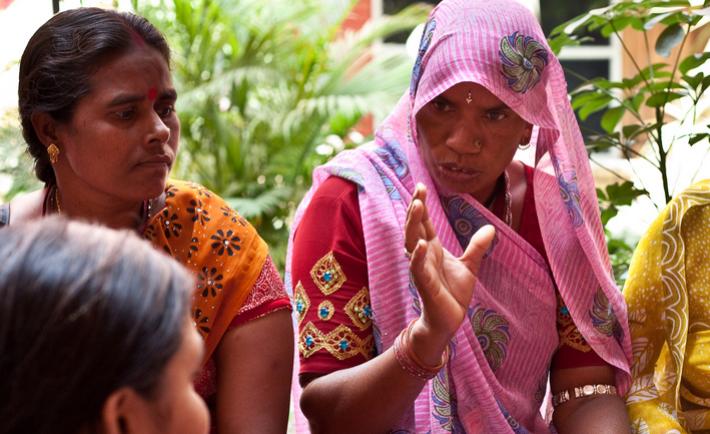
Women leaders in India, where the constitution dictates that one third of seats in local entities are reserved for women. Photo by: Gangajit Singh Chandok / U.N. Women / CC BY-NC-ND
Editor's Note: This op-ed was originally published on Devex.com.
To achieve a world “in which every woman and girl enjoys full gender equality and all legal, social, and economic barriers to their empowerment have been removed,” will require political action — leadership, commitment and accountability. The U.N.’s “Transforming Our World” sustainable development framework, which will be adopted by the General Assembly in the coming days, is the latest call to action. We will all be judged on what we do over the next 15 years to make that ambition into an empowered reality for women and girls.
Sustainable development goal 5 to “achieve gender equality and empower all women and girls” expands significantly on the Millennium Development Goals by detailing in a single goal a full range of issues and actions that will drive success. However, in the proposed indicators, which anchor accountability for the new global framework, critical metrics for women’s participation in political life and public decision-making are missing.
A number of the other goals in the post-2015 framework complement and reinforce SDG 5. For example, SDG 1, to end poverty everywhere; SDG 10, to reduce inequality within and among countries; and SDG 16, to promote good and inclusive governance. This consistency across goals mirrors what we at NDI have long acknowledged: gender equality and women’s empowerment is central to both how democracy is structured and what democratic governance is supposed to deliver, namely improving the well-being of citizens.
